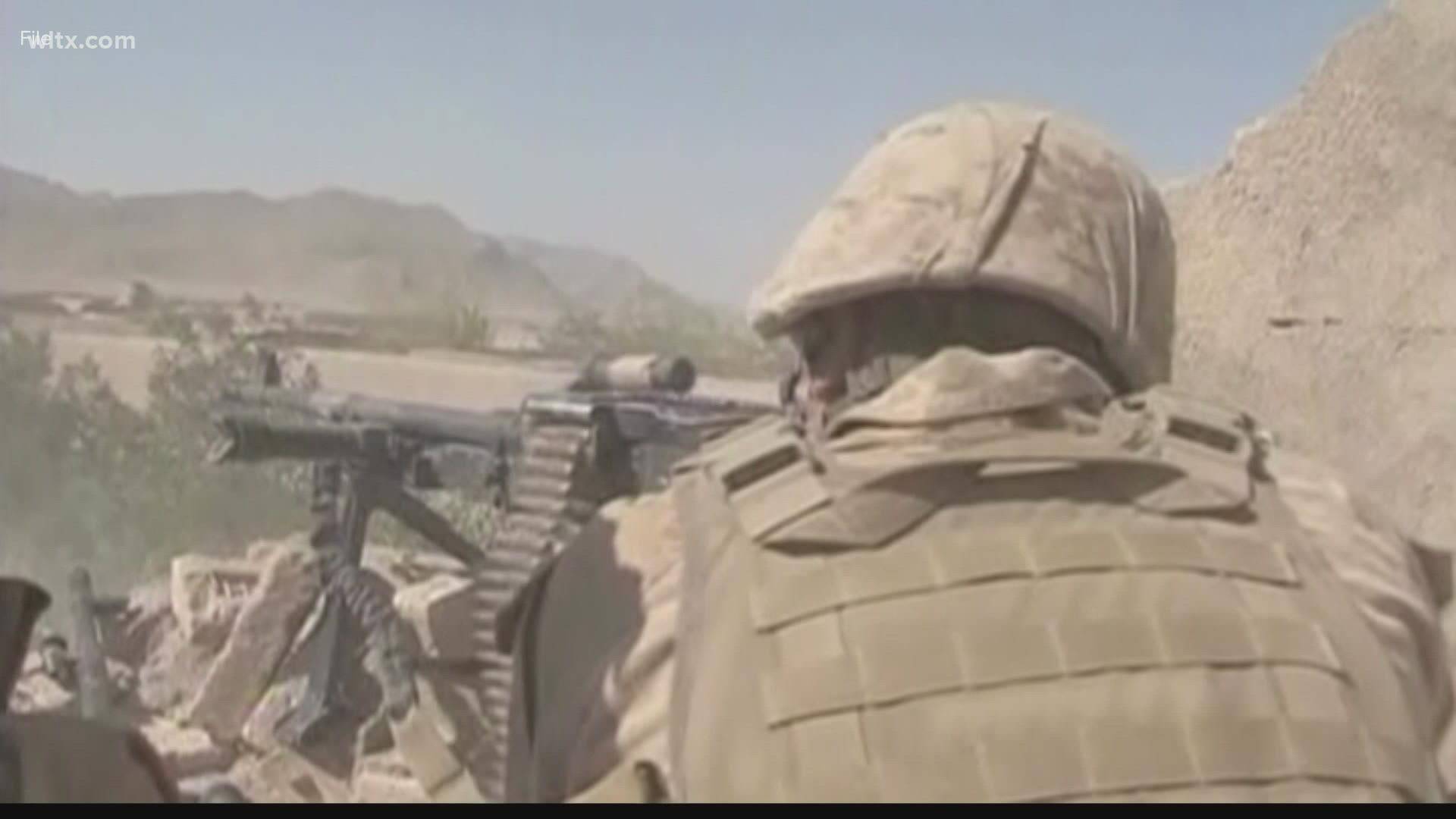COLUMBIA, S.C. — By August 31st all American troops will be out of Afghanistan, after two decades protecting the Afghan people and at war with the Taliban.
As the date of withdrawal gets closer, Afghanistan veterans remind us of the sacrifice they made serving their nation.
Matt McElhinney was deployed to Afghanistan in 2010, he says, "I was with Third Battalions, 6th Marines, from 2008 – 2012."
During his first deployment he was shot.
"I was searching a school house in Marjah, Afghanistan and then the building got surrounded my platoon was repelling the attack and I was outside when the shooting started I got shot in the small of my back, just beneath my flack and it went through my entire body," he recalled. "Through my pelvis and they cut it out just below my belly button."
For Matt, the Taliban takeover hit him with the intensity of a bullet.
"Afghanistan isn't something I can put out of my mind on a day to day basis. I get up and my hip hurts, I do anything and my hip hurts… this historical image of people falling from plans trying to escape this place because it is so bad, it put me in a really dark place," said McElhinney.
Bobby Edwards, another veteran, served this country for nearly 18 years. "We deployed in Afghanistan 2005-2006. Iraq 2007-2008, and then Iraq again 2009-2010," he said.
He believes what's happening now may bring back painful memories.
"I think that a lot of guys out there some of their PTSD is being re-triggered because they feel like the time spent over there is all for nothing and a waste,' he said.
He says for those who return home, a part of them never will. "Defending the freedoms of this nations and fighting for our country, then you see what's happening right now it just stirs everything back up,' he said.
USC Associate Professor Dr. Nikki Wooten, who specializes in military social work, said veterans watching the crisis unfold can experience flashbacks, nightmares, PTSD and depression.
"Can have an effect not only on the current Iraq and Afghanistan but also from any war era," said Dr. Wooten. "A feeling of sadness, disappointment, like there service didn't matter or that they failed the mission... Renewed or constant thoughts of about their war time experience."
Karly Warren from South Carolina Veteran Affairs says the "Post 9/11 military to VA program" is designed for those deployed to Afghanistan.
"We have anger management, we have trauma recovery services, we have substance abuse treatment programs," said Warren.
As for Bobby, he says his own struggles with mental health pushed him to start his own non-profit, For His Glory Outdoors.
"Our mission is to get combat veterans on the water fishing and in the woods hunting," said Edwards.

